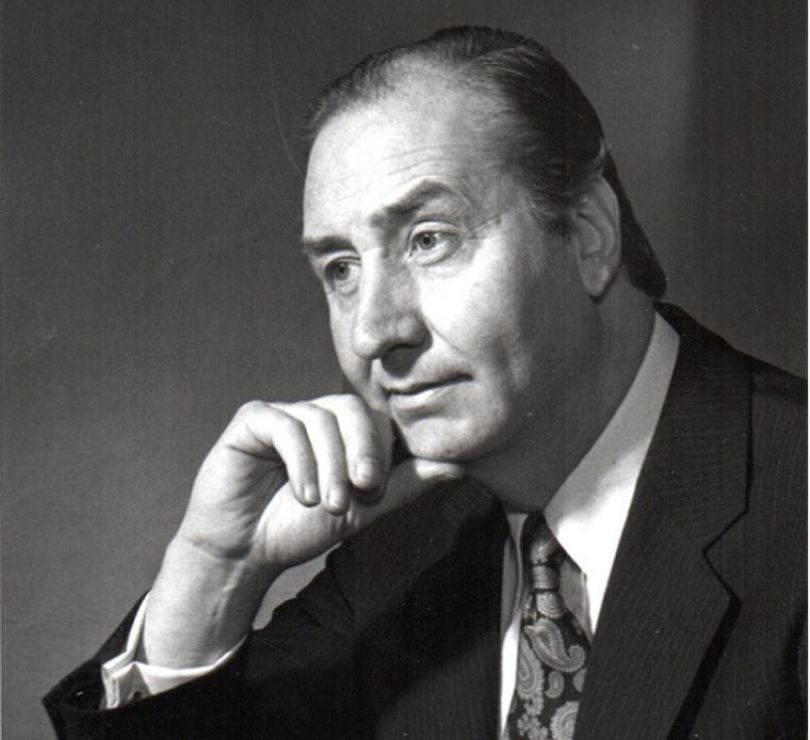Tribute Concert, 6th April 2024
“Tribute”
The National Youth Brass Band of Great Britain under the direction of Guest Conductor Dr Robert Childs with Guest Soloist Dr David Childs (euphonium)
The theme of this concert is ‘Tribute’ and it pays homage to one of Britain’s finest and most successful brass band conductors Mr Geoffrey Brand who died on 5 th February 2023. Although he conducted brass bands, he was much more than that. Geoffrey Brand embodied everything music had to offer including conducting, publishing, BBC producing, professional trumpet playing, the Salvation Army, military music, record producer, educator, and entrepreneur. He was Music Director of the National Youth Brass Band of Great Britain and Scotland and more famously conductor of the Black Dyke Mills Band.
In addition to honouring Geoffrey Brand, Dr Robert Childs also pays musical ‘tribute’ to three female composers, Dorothy Gates, Evelyn Glennie and Judith Bingham. All three have emerged as successful composers in what was once predominately a man’s world.
The Jewel in the Crown of the programme is a new commission from Sir Karl Jenkins, inspired by climate change and the effect it’s having on our fragile planet. His music also pays tribute to the valuable conservation work organisations such as The Wildlife Trust does to bring balance back to nature and slow down the effects of global warming.
Dora Stoutzker Hall, RWCMD, Cardiff
A recording of the concert is available here.
Programme Notes
Carnival Overture Opus 92, Antonin Dvorak arr Geoffrey Brand
Written in 1891 Carnival Overture is part of a ‘Nature, Life and Love’ trilogy. Carnival Overture represents ‘Life’. Geoffrey Brand arranged the work for use at the 1980 National Brass Band Championships of Great Britain. Brighouse and Rastrick were the victors under the baton of Derek Broadbent.
Sadness and Tenderness from Voices of Youth, Edward Gregson
Voices of Youth was commissioned by Geoffrey Brand for the NYBBGB in 1968 from the young composer Edward Gregson. This trio (GB, EG and NYBBGB) was unwittingly to become a lifelong partnership. Edward writing many pieces for Geoffrey’s R. Smith and Co publishers and remaining associated with youth music through his association with the Royal Northern College of Music, NYBBW and NYBBGB.
Force of Nature – Concerto for Euphonium, Peter Graham
i. Matador
ii. Wayfarer
iii. Pilar
Euphonium Soloist Dr David Childs
Force of Nature – Concerto for Euphonium was written for Dr David Childs and first performed with the Black Dyke Band in 2023. The work is inspired by the American novelist and short-story writer Ernest Hemingway. The title alludes to his character and strong personality and the names of thethree movements reflect on moments in his extraordinary life.
i. Matador – Spanish traditions fascinated Hemingway; he wrote frequently about them. This movement is obviously flamenco inspired.
ii. Wayfarer – (reflections on poor Wayfaring Stranger) the tensions of Hemingway’s early life in the Midwest suburb of Oak Park fuelled his wander lust. At the age of 18 he arrived at the Italian Front serving as an ambulance driver. His overseas travels informed much of his work, spanning the globe from his early literary sojourns in France to African Safaris, the Spanish Civil War, and excursions in Cuba and the Caribbean.
iii Pilar – was the name of his beloved boat, it could cut through the waves off the coast of Cuba at 16 knots!
Journey Into Freedom, Eric Ball
Eric Ball was commissioned to write Journey into Freedom for the 1967 National Championships of Great Britain. Geoffrey Brand won the contest conducting the Black Dyke Mills Band. The work is rhapsodic in form, but divided into six identifiable thematic sections, it represents the ‘journey’ from short term, soulless materialism to transformative eternal inner freedom; the minor keyed mechanical drive of the opening finally resolved in a majestic ‘love theme’ major key cadence to close – ‘freedom’ of body and mind secured in all its glory.
INTERVAL
Dundonnell from Hymn of the Highlands, Philip Sparke
Hymn of the Highlands is a suite of seven movements all named after locations in the Scottish Highlands. It was written by Phillip Sparke and commissioned by Prof. David King for the Yorkshire Building Society Band. It was first performed in the 2002 European Gala Concert. Dundonnell forms the finale of the suite and has two contrasting sections. Dr Robert Childs included this in the programme tonight to represent Geoffrey Brand’s connection with the NYBBS.
Faith iii, Dorothy Gates
Faith is the third and finale work in a trilogy Faith, Hope and Love written by Dorothy Gates.
A Little Prayer, Evelyn Glennie
A Little Prayer was composed by Evelyn Glennie when she was just 13 years old. By this time, she had already lost 90 percent of her hearing. Originally conceived as a marimba solo, tonight it’s arranged for full band and NYBB choir!
Four Minute Mile, Judith Bingham
Four Minute Mile was written for brass band in 1991 and only later re-scored for symphony orchestra. Its inspiration, which also dictates the layout, is obvious from the title.
Brilliante, Peter Graham
Brilliante was originally written as a euphonium duet for The Childs Brothers, Robert and Nicholas Childs. It was first performed at the Centenary Concert celebrating the British Bandsman in 1987. Peter Graham re-arranged the duet as a solo for David Childs. There is also a strong connection here with our tribute to Geoffrey Brand because he was the Editor of the British Bandsman for many years!
Danny Boy, arr. Sir Karl Jenkins CBE
Originally Danny Boy was arranged by Sir Karl Jenkins for brass band and male choir and featured on an EMI CD called This Land of Ours. He later re-scored the arrangement for solo euphonium and band.
Euphonium Soloist Dr David Childs
Fragile Earth, Sir Karl Jenkins CBE
Sir Karl Jenkins CBE FRAM writes. This work, in three movements is about climate change. It is impossible to cover every aspect and nuance of global warming in fifteen minutes of instrumental music with no text. I am not a believer in copious programme notes that mean little to most people. However, I have described some musical pointers to help the listeners on their way. There would have been two ways to approach this composition; all doom and gloom from beginning to end or to introduce some element of hope. I have chosen the latter, so each movement contains a passage of optimism.
i. Scorched Earth
The title is taken from a military phrase where retreating armies left their mark by destroying the habitat as they marched, leaving nothing beneficial to humanity behind. In this instance the core subject is heat of such intensity that it destroys all in its path: volcanic eruptions (with tsunamis being an after effect), earthquakes, forest fires and smouldering landscapes. The slow middle – section, brings a suggestion of abatement and a plea for hope and renewal but the horror returns. The movement opens with a dissonant cluster of cornets, signifying intense heat, interrupted by explosions from the percussion. Low trilling brass bring a crescendo of menace that leads into the movement proper and its militaristic flavour. The plea for hope, mentioned above, interrupts the flow but catastrophe returns.
ii. The Blue
‘The Blue’ refers to two of the biggest phenomena on Earth; the oceans (over 95% of the earth’s water) and the Antarctic Blue Whale (the largest living being, mammal or animal). The movement opens with a reference to the Blue Whale of which more below. This moves into a majestic theme reflecting both the ocean and the whale. A hint of impending doom is introduced by a faster tempo that spells possible disaster (whaling, oil spillage, etc). The music ends in a reflective mood that references the whale. The whales are represented in the ensemble by the tubas in two ways. A low drone for its call and the ‘blowhole’ effect achieved by the band blowing air through their instruments without producing a note.
iii. Flight
Flight explores the forced migration of all living beings, man and beast, with music building from small scurrying beings and birds to an exodus of humankind. The movement opens with a tolling bell before a solo cornet over enters, depicting a desolate landscape. Increasing movement builds in a minimalist – style music, episodic figures dart in and out before a slow low brass theme echoes humankind. The piece concludes with a big bold optimistic statement reminding us the nature is a powerful force, but we must help it recover.
Sir Karl Jenkins CBE
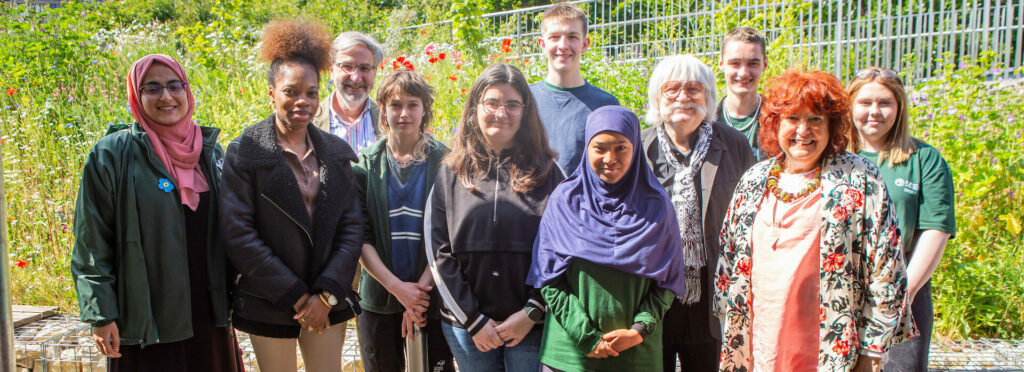
Composer of the million-selling album Adiemus: Songs of Sanctuary, Karl Jenkins trained as classical musician at Cardiff University and Royal Academy of Music in London.
In 1970s he played with Ronnie Scott’s jazz band and jazz-rock fusion band Soft Machine.
He topped the record charts with Adiemus: Songs of Sanctuary, which hauntingly evokes choral and world music.
Sequels Adiemus: Cantata Mundi and Adiemus: Dances of Time also rapidly topped the charts.
His music is widely familiar through advertising usage, including Adiemus for Delta Air Lines and Palladio for the De Beers Diamond campaign.
Choral works include his ‘Mass for Peace’ The Armed Man which has received over 2750 performances, together with Requiem, Stabat Mater and The Peacemakers all of which have rapidly entered the repertoire of choral groups worldwide. His music is recorded on the Decca Classics and Deutsche Grammophon labels His autobiography Still with the Music was published in 2015.
Sir Karl was awarded a Knighthood in the 2015 Queen’s Birthday honours.
Tros y Garreg from harp concerto Over the Stone was included in music for Coronation of King Charles III at Westminster Abbey in May 2023.
A Tribute to Geoffrey Brand
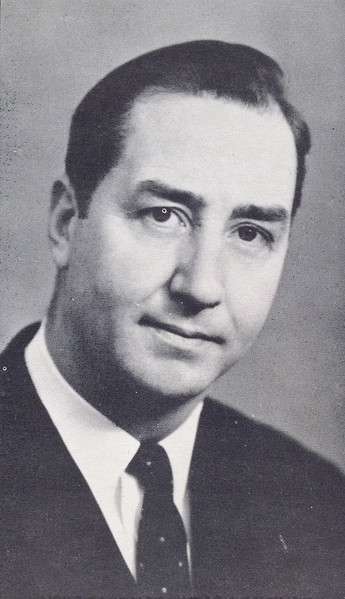
Dr Robert Childs pays tribute to Geoffrey Brand, former Music Advisor, Guest Conductor, Vice-President, and Council Member of the National Youth Brass Band of Great Britain.
I knew Geoffrey Brand for most of my life, I played under him in the NYBBGB and GUS Footwear Band in the 70’s. We remained friends until his sad death on Sunday 5th February 2023. I found him to be a fascinating and inspirational man. He was involved in so many aspects of the music business including conducting, publishing, BBC producing, professional trumpet playing, Salvation Army, military, record producer, educator and entrepreneur.
The words below are taken from an interview Robert Childs did with him for Brass Band World Magazine celebrating his 90th Birthday.
“Let’s start at the beginning: Geoffrey Brand was born on 9th May 1926 into a strongly connected Salvation Army family in Gloucester. His Father, Edward (Ted) was secretary of Gloucester Salvation Army Band and played Eb Bass in the band. His uncles also played in the band and at the tender age of five Geoffrey joined the ‘Young Peoples Band’ on Eb Bass and after a short time was given a euphonium. Although content to play euphonium, he always yearned to play the cornet but had to wait until the outbreak of WW2 before there were vacancies in the band. Aged 13 he was invited by Bandmaster Mr Fred Cullip to swap to his first love the cornet. Geoffrey remembers the moment with great passion, he said, ‘It was like winning the football pools, I’d always loved the cornet’. He went home that night and practised for two hours and practised daily thereafter.
On several occasions Geoffrey told me that he’s had a ‘guardian angel’ looking after him, guiding him through life. He believes it was a guardian angel who sent five Salvation Army/RAF musicians to a small town, (Little Rissington) near where he lived. One of the five was legendary trumpeter ‘Bill’ William Overton (who went on to become Principal Trumpet of the BBC Symphony Orchestra). Geoffrey says, ‘Bill Overton changed my whole life, he started giving me cornet lessons, he was inspirational, and I started practising the cornet like a maniac, I never wanted to put it down!’ After several years of tuition Bill introduced Geoffrey to the trumpet and took him on several gigs where Geoffrey remembers, ‘Earning a few shillings.’
Just before Geoffrey’s 18th Birthday and under Mr Overton’s influence Geoffrey entered the Walter Stokes Scholarship to study at the Royal Academy of Music. However, this period coincided with his call-up for War Service (which was temporally deferred to allow him to audition for the Scholarship).
Geoffrey won the Scholarship, but his musical education was put on hold as he was posted to Norfolk to aid the War effort. Whilst in Norfolk he frequently played cornet in Norwich Salvation Army Band and later played cornet in the Staff Band of the Royal Army based in Aldershot.
After the War ended in 1945 Geoffrey left the Army and took up his prestigious Scholarship at the Royal Academy. By 1946 he was there studying trumpet with George Eskdale (Principal Trumpet,
London Symphony Orchestra). The Royal Academy was also the place where Geoffrey began formal conducting training. Sometimes he’d find himself playing trumpet in the first orchestra and conducting the second orchestra. Upon completion of his studies at RAM Geoffrey secured a position on trumpet at Sadler’s Wells Opera Orchestra a position he held for approximately three years before moving to a similar position with Royal Opera Orchestra at Covent Garden where he remained for a further three years. During this period, he also freelanced as a trumpeter with most of the other professional London Orchestras.
In the late 1940s Geoffrey remembers visiting Bill Overton’s house who (in addition to playing Principal Trumpet in the BBC Symphony Orchestra) was also conducting Lewisham Band where
Geoffrey eventually became Deputy Bandmaster. During this visit he met the love of his life and wife to be Violet Boughton. She was from Canterbury and studying in London but was also involved with Lewisham Band. In 1950 Geoffrey and Violet married and bought their first house in Collindale
Northwest London. They went to Jersey (Chanel Islands) for their honeymoon and Geoffrey remembers returning to their house in Collingdale to find several messages asking him to contact the Royal Philharmonic Orchestra. The orchestra were planning a three-month tour of America under the baton of Sir Thomas Beecham and they wanted him to play trumpet with them. Geoffrey said, ‘It was an offer I couldn’t refuse. Thomas Beecham was one of the all-time great conductors. We sailed on the Queen Mary which was a five-and-a-half-day journey across the Atlantic. Food was still being
rationed in the UK, but food was plentiful on the Queen Mary! We played concerts every day. I remember the great Dennis Brain on Principal Horn….. They don’t come better than Dennis!’
After Geoffrey’s time as a professional trumpet player (which he enjoyed enormously) he joined the BBC in their Light Music Department which produced programmes like ‘Friday Night is Music Night’ with the BBC Concert Orchestra. He remembers his first day at the office and his surprise to find Harry Mortimer in the office next door. Harry Mortimer’s title was BBC Brass and Military Band Supervisor. Harry was responsible for all Band’s performing on the radio and was the person who
wrote the programme notes for the presenters. Geoffrey and Harry became very good friends and when Harry retired from the post Geoffrey took on his responsibilities.
Working at the BBC created lots of fascinating links for Geoffrey. His first formal introduction to the British Bandsman magazine was supplying Eric Ball (the then Editor) with brass band radio
information. Geoffrey was eventually invited by Eric Ball to take-over editorship the newspaper.
During this period (mid 1960s) Phillip Catelinet (famous tubist with the London Symphony Orchestra) invited him to become Music Director of the John Dickinson Band. It was during his BBC days that he met Dr Denis Wright with whom he became close friends. Dr Denis eventually invited Geoffrey to take-over leadership of the National Youth Brass Band of Great Britain. It was his involvement with BBC Broadcasting that led him to meet Roy Newsome and the Black Dyke Band. In 1967 after a radio Broadcast Roy invited Geoffrey to become the Band’s Professional Conductor.
I remember going to the Royal Albert Hall with my Dad (John Childs) to listen to the National Brass Band Championship Finals. I was only ten years old, but I remember Black Dyke and Geoffrey Brand’s performance of Eric Ball’s Journey into Freedom…. It was so special! So emotional. He won the
contest at his first attempt. What an impact Geoffrey Brand had on the Brass Band Movement. He went on to conduct many bands after that including most notably Brighouse and Rastrick, GUS Footwear, Grimethorpe Colliery and Scottish CWS Glasgow Band’s. However, the contesting band he is synonymous with is still John Foster and Son, Black Dyke Band. He conducted them through one of their most successful periods at the time. He won the British Open in 1968, amassed a handful of podium finishes and won the World Championship in 1970 and in 1972 followed it with a ‘rare double’ winning both the Open and the National. He also won the latter two Championships with Grimethorpe and Brighouse Bands on separate occasions.
When I asked Geoffrey about his time conducting Bands, he spoke most fondly about his time with
the National Youth Brass Band of Great Britain. He was asked by Denis Wright to take the Band in
1967 and Geoffrey’s remit was to give the young musicians opportunities and musical experiences that they wouldn’t receive in their own bands. Geoffrey told me, ‘I Loved my time with the NYBBGB, it kept me young, it was wonderful, I wanted it to be different, I didn’t want it to become a routine’.
As I said at the beginning of this interview, I was a member of the NYBBGB during his tenure which ended in 1974. The experience was phenomenal. Geoffrey Brand introduced us to modern music, orchestral conductors, tours abroad and most importantly he introduced us to a new approach to
music making. His approach wasn’t about playing louder or softer or slower or faster, it was much more narrative. He’d ask us to play staccato quavers like rain drops hitting a tin roof, or a climax of a phrase like reaching the top of a mountain. Very often he’d ask someone a question, ‘What does
scherzando mean?’ and before the player could answer Mr Brand would say, ‘Don’t tell me, show me’. He was fresh and inspirational and through his time with the NYBBGB (and the NYBBS) he developed so many young musical minds. He would never start a piece of music without telling us about the composer and the context of the music.
During the 1980s Geoffrey developed the Wind Band catalogue of his publishing company R. Smith & Co and part of that development was forming The City of London Wind Ensemble, a group of
professional musicians dedicated to promoting that genre of music. During this time, he also wrote
books and toured the World lecturing on all aspects of music. Eventually Geoffrey sold R. Smith & Co but continued developing a wind band catalogue under the new name of G&M Brand.
I asked Geoffrey what he’s up to these days and he said, ‘I enjoy spending days with my wife Violet and chatting to our children Gillian and Michael. I’ve just finished filming a video on, The Art of
Conducting. It’s in two parts and can be accessed at www.GMBrand.co.uk’.
There is no doubt that Geoffrey Brand led a very active life and achieved more than most. However, when I asked him what his most cherished memory was, he said, ‘Its family, I am most proud of my wife Violet, my Son Michael and Daughter Gillian. Without a strong family it’s difficult to exist.’ I also asked him the secret to his youthful body and mind, and he said, ‘Quite simply it’s sleep! When you’re tired go to sleep, don’t fight it’.”
Sadly, Geoffrey died on 5th February 2023. Speaking about his Father’s time with the NYBBGB Michael Brand said, “My father served the NYBBGB as Music Adviser from 1967-1975 and for many years continued as Vice President and Trustee. His wife, Violet, served as a Member of the Pastoral staff and they both looked forward greatly to the courses, watching and listening to young brass players. They realised that whilst the courses were primarily about music it was also an important time for young people to develop as adolescents”. On the NYBBGB’s 40th birthday in 1992 Geoffrey Brand wrote: “I still ‘hear’ performances and ‘see’ eager young faces producing them. A special joy is meeting former students who are now contributing to the brass band scene, as players, conductors, administrators- or as parents of future members”.
Michael added, “My father followed the NYBBGB’s activities closely for the rest of his life – hearing
and seeing those young faces grow up and following their careers – and he and Violet enjoyed sharing their fond memories of the NYBBGB courses.”
Dr Robert Childs
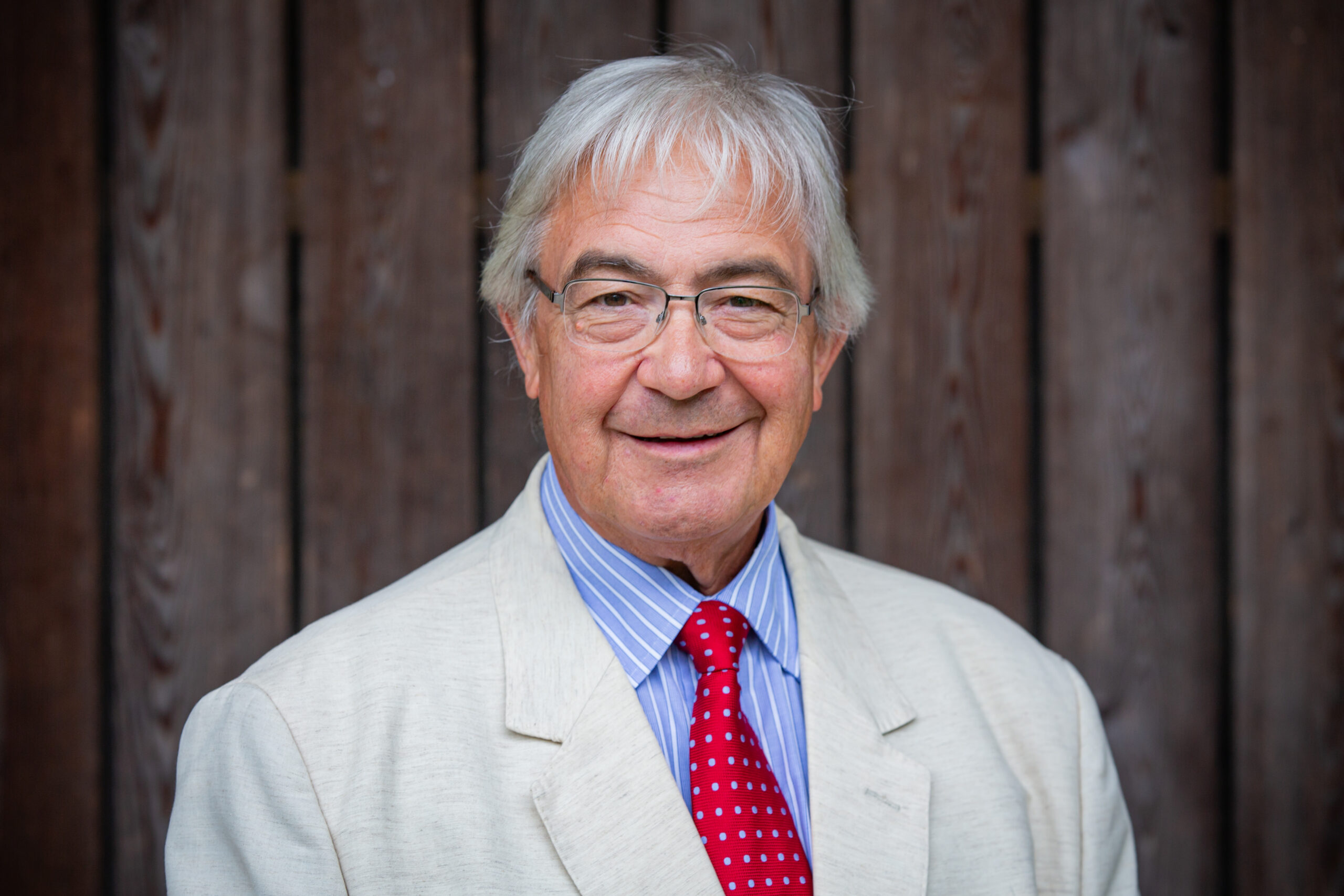
Dr Robert Childs is a leading figure in the world of brass music. For over forty years he performed at
the highest level giving solo performances in many of the world’s most prestigious venues.
He has given masterclasses throughout Europe’s finest conservatoires and is now recognised as a leading
education specialist and brass band adjudicator.
Following a glittering career as principal euphonium and soloist with many of Yorkshire’s finest brass
bands, in 2000 Robert relinquished his position as principal euphonium and associate conductor of
Black Dyke Band in order to become Musical Director of Cory Band in Wales. During his twelve year
tenure with Cory, the band won the World Brass Band Championships, National Brass Band
Championships of Great Britain, Brass in Concert Championship, British Open Championships (on 5
occasions), European Brass Band Championships (including a 2008-2010 hat-trick), Welsh Regional
Championships (on 9 occasions) and he led the Band from 13th to No.1 in the official World
Rankings. In 2014 Robert won Brass In Concert conducting Grimethorpe Colliery Band and the
following year led them to victory at the British Open Championships.
Robert enjoys adjudicating and has served on many jurys in prestigious competitions. In 2022 he
adjudicated the National Championships of Great Britain, Belgium, Austria, Germany and
Switzerland. He has previously adjudicated in New Zealand, Italy, Australia, Japan, Norway and
America. He is looking forward to Denmark!
In 2002 Robert was awarded a Doctorate in Musical Arts from the University of Salford and is also an
Associate of The Royal College of Music and Fellow of The London College of Music. Robert gained a
Masters Degree with distinction from University of Leeds, holds a Post Graduate Certificate in
Education from the Open University and in 2007 his remarkable achievements were recognized by
the Worshipful Company of Musicians when he was awarded the prestigious Iles Medal. In 2008
Robert was given ‘Freedom of the City of London’ and also received the prestigious John Edwards
Memorial Award by the Welsh Music Guild for outstanding contribution to Welsh Music.
As an educator, Robert is pre-eminent in his field. He is now an Honorary Fellow of the Royal Welsh
College of Music and Drama, where he is also Director of Brass Band Studies; he is a visiting
Professor at Tokyo’s Senzoku Gakuen College of Music; Chairman of the National Youth Brass Band
of Great Britain organisation; advisor to the Harry Mortimer Trust; Musical Director of both Brass
Band Summer School U.K. and the North American Brass Band Summer School, and Managing
Director of Performing Arts in Education.
Guest soloist Dr David Childs
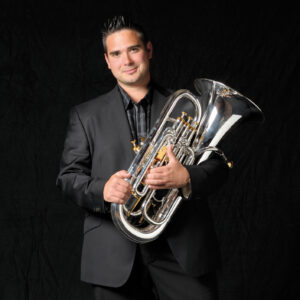
Described by The Observer as ‘a great ambassador for the euphonium, possessing an astonishing technique and an engaging stage presence’, David Childs is regarded as one of the finest brass musicians of his generation, touring extensively throughout Asia, continental Europe, and North America.
He has appeared as soloist with the BBC, Manchester and RTÉ Concert orchestras, BBC National Orchestra of Wales, BBC Philharmonic Orchestra, Philharmonie Baden-Baden, Royal Liverpool Philharmonic Orchestra, Royal Philharmonic Orchestra, Sinfonia Cymru, Welsh National Opera, Vancouver Symphony Orchestra, Orchestra da Camera Fiorentina and many of the finest brass bands and military bands in both the UK and USA.
He has made solo appearances at the Singapore International Festival, Harrogate International Festival, Cheltenham Festival, Melbourne International Festival, BBC Proms and New York Festival, given solo recitals at the Wigmore Hall, Purcell Room and Bridgewater Hall, and performed concertos at the Concertgebouw, Royal Albert Hall, Queen Elizabeth Hall, Royal Festival Hall, Symphony Hall, Lincoln Center and Carnegie Hall New York.
A keen advocate of new music, Childs has premièred sixteen concertos for euphonium including a Royal Albert Hall BBC Proms broadcast of Alun Hoddinott’s, Sunne Rising – The King Will Ride, a Carnegie Hall US première of Sir Karl Jenkins’ Concerto for Euphonium & Orchestra, a UK premiere of Christian Lindberg’s Concerto for Euphonium & Orchestra directed by the composer and a Welsh Proms world première of Paul Mealor’s Concerto for Euphonium & Orchestra. In 2022 he gave the first public performance of a new setting for euphonium of Ralph Vaughan Williams’ Concerto for Tuba at the Last Night of the Welsh Proms with the orchestra of the Welsh National Opera.
During his career as a euphonium soloist, Childs has received many awards in recognition of his achievements, including: Arts Council Wales Creative Wales Award; Worshipful Company of Musicians Silver Medal Award; Welsh Music Guild’s Leo Abse & Cohen Award; Harry Mortimer Trust Award; RNCM Principal’s Gold Medal Award; Making Music’s Dorothy Green Award; Musicians Benevolent’s Sir Charles Leggett Award; Countess of Munster Star Award, and many more.
He has also received several accolades as a recording artist, including two ITEA Excellence in Recording Awards, and can be heard on several labels including EMI, Deutsche Gramophone, Chandos, Naxos, Doyen and World of Sound.
A proud product of the British brass band movement, Childs is a former member of several
ensembles including the National Youth Brass Band of Great Britain, National Youth Brass Band of Wales, Brighouse and Rastrick, and Cory Band with whom he was Principal Euphonium for ten years under the baton of his father, Dr Robert Childs.
In 2018 Childs was appointed Professor of Euphonium at the University of North Texas and
holds positions as Visiting Professor at Tokyo’s Senzoku Gakuen College of Music and International Visiting Tutor at the Royal Welsh College of Music and Drama. He is a founding member of Eminence Brass, Artistic Director of Cardiff Symphonic Winds, Editor of the Brass Band World Magazine, and as a Buffet Crampon Besson Artist he continues to showcase the euphonium as a serious solo vehicle within the world of classical music.
